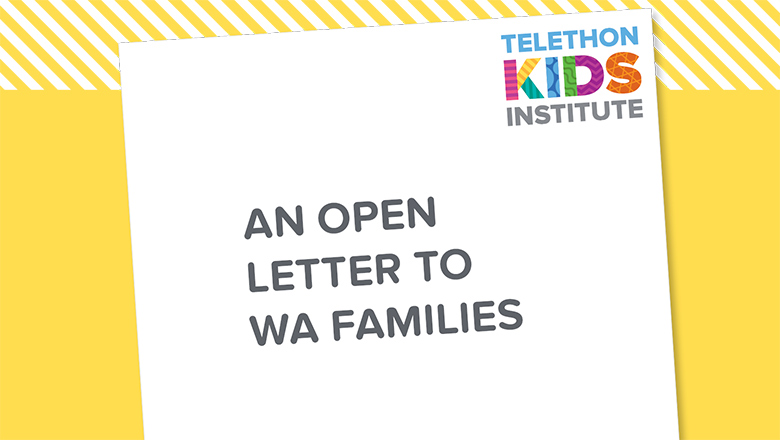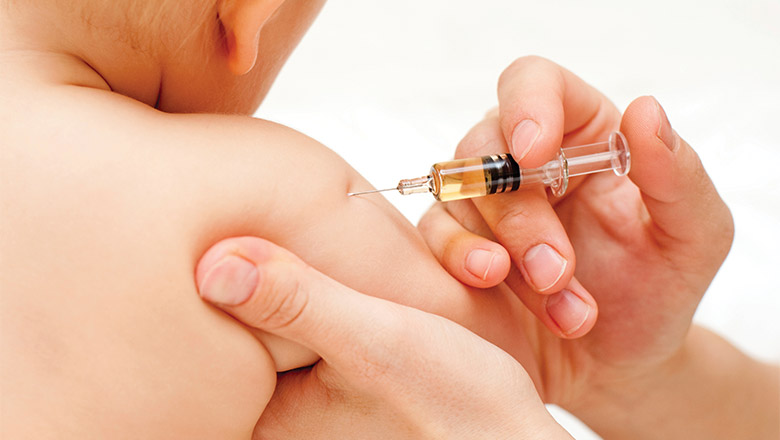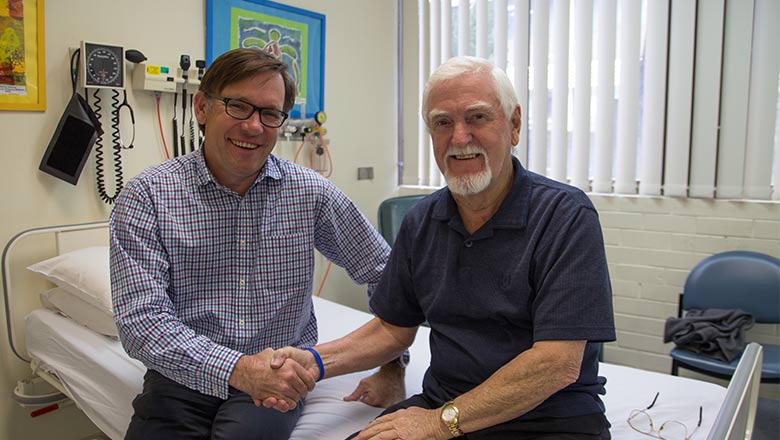Search
News & Events
Trans Tasman action to fast track rheumatic fever vaccinePrime Ministers of Australia and New Zealand have agreed to provide $3M to help fast-track the development of a vaccine against rheumatic fever.
News & Events
New study examines vacccine to prevent cervical cancerThe Telethon Institute for Child Health Research today announced a new study investigating a vaccine to prevent infection of Human Papilloma Virus (HPV).

News & Events
An open letter to WA familiesMy colleagues and I at Perth's The Kids Research Institute Australia study how to make current vaccines work better, reduce common side effects, and develop new vaccines.

News & Events
Vaccination Q&A with Dr Chris BlythImmunisation plays an important role in preventing disease within our community. Watch Dr Chris Blyth answer some commonly asked questions about vaccines.

News & Events
Free vaccination public seminarImmunisation plays an important role in preventing disease within our community. Join us at a FREE public seminar on vaccinations.

News & Events
Extra whooping cough shot to protect your bubToddlers will now get an additional whooping cough vaccine to protect them against the potentially deadly disease.

News & Events
Vaccine trial aims to curb ‘superbug’Sarah Le Roi knows well how debilitating Clostridium difficile infection (CDI) can be. She was struck down with the 'superbug' while on holiday in the US.
News & Events
Wesfarmers Centre of Vaccine and Infectious Diseases Research Seminar Series 2014Wesfarmers Centre of Vaccine and Infectious Diseases Research Seminar Series 2014.Genetic and functional studies of leishmaniasis: understanding the role of HLA
News & Events
Infectious Disease & Vaccination Public SeminarHear the facts about vaccination and infectious disease from some of Australia's leading experts: Professor Jonathan Carapetis, Dr Peter Richmond

News & Events
WANTED: 'Flu BustersHundreds of healthy volunteers are needed in Perth to test the effectiveness of a current 'flu vaccine.
